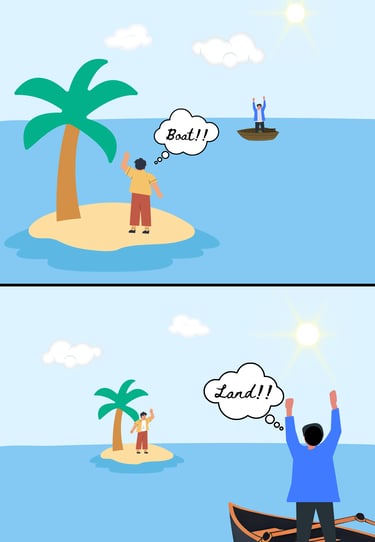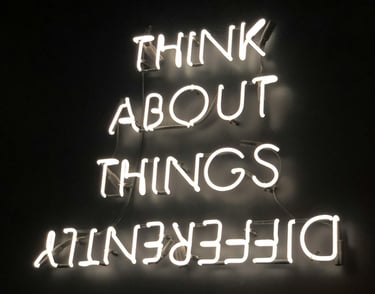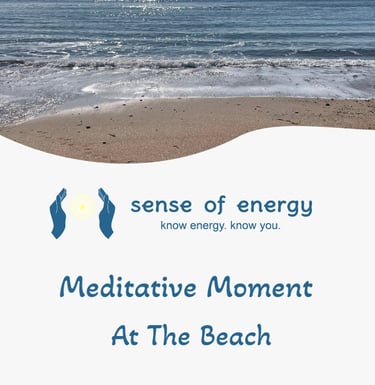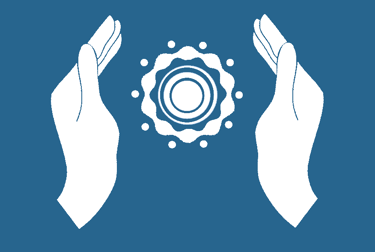
Good Luck, Bad Luck, Who Can Tell?
Is life good or bad or is it a matter of perspective?
THEME OF THE WEEK
Back in 2018, I was listening to an episode on BBC Sounds by the writer and comedian Sarah Kendall. It was a part of her Australian Trilogy Series (Series 2, Episode 1).
In it she talks about her life experiences and her relationship with her family and introduces the parable Good Luck, Bad Luck, Who Can Tell?
I had never heard this story and as I listened it resonated deeply. It seemed to put in to words my thinking at the time. It was one of those moments where you find yourself saying “yes of course!”
This is how the parable goes:
There was once a farmer who had a magnificent horse that helped him to till his land and was loved by the family. One day the horse ran away. The local villagers heard about the horse and visited to offer their sympathy at the farmer’s misfortune. In response the farmer said “Good Luck or Bad Luck, Who can tell? The horse has gone, it is what it is.”
A few days later, while at work on his land, he saw his horse on the hill, returning with a herd of wild horses. On hearing the news, the villagers visited again this time offering their congratulations at his fortune. “What a godsend, now you have 12 horses to work for you and can earn 12 times the income!” The farmer replied, “Good Luck or Bad Luck, Who can tell? all I can see is 12 horses.”
A few weeks later, whilst training the wild horses, his son fell off and broke his legs. Knowing that his son was a strong man who helped him a lot on the farm, the villagers gathered again to offer their condolences. “How terrible this is for you, especially as you are ageing and your son managed much on your farm!” The farmer replied “Good Luck or Bad Luck, Who can tell? My son has broken his legs, that is all I know”.
Not long after, the army visited the village to conscript all able-bodied young men to fight in the war. The farmer’s son was spared because of his injuries and again the villagers commented on the farmer and his son’s fortune. In reply the farmer said “Good Luck or Bad Luck, Who can tell?
How often in life have we experienced an event that at the time felt bad, only to find later on that hindsight teaches us a valuable lesson? One of the best examples I have seen is in the case of redundancy. For some this is hugely scary. If unexpected it can feel like our whole world has changed, which is even more anxiety making when it is not of our choosing. Yet for others, it is an opportunity.
What this parable seems to suggest is that there is no good or bad. We don’t really know what is good or bad for us until the consequences of the event and our reaction to it play out. That is not to say it condones bad behaviour that harms others.
How events may feel is a matter of perspective. Do we view the world as a glass half full or a glass half empty? Of course, the scientists among us would say the glass is always full, technically speaking. Often in times of stress, it is difficult to step back and see the bigger picture. We are unable to see the wood for the trees.
Our perspective is based on how we perceive our world and on many factors, which leads to an individual and subjective viewpoint.
Physiologically, our senses place natural limits on how we perceive the world. In our eyes, specialised cells called rods and cones detect light and the frequencies of the primary colours. In contrast, animals like dogs and cats lack the cones needed to detect red and green, viewing their world in blues, yellows and browns. Likewise, some insects can see ultraviolet light, allowing them to perceive patterns and colours in plants that are completely invisible to the human eye. Humans also have a limited sense of smell compared to animals like dogs, which possess far more olfactory receptors and can detect scents at concentrations far beyond our capability.
Our opinions and beliefs are deeply influenced by our personal experiences, as well as the values and lessons passed down through our families and cultures. For instance, the way historical events, such as wars, are taught in schools can differ significantly from one country to another, often reflecting national perspectives or biases. The media also plays a powerful role in shaping how we perceive events. However, finding


Perspective
news coverage that presents a balanced view can be challenging. Our reactions to the news are often driven by empathy, imagining what it would feel like if such events were happening to us. This can provoke discomfort, especially when the outcomes are uncertain or beyond our control, as it taps into our underlying fears and anxieties.
1) Examine your beliefs.
It can be surprising how often we cling to ideas formed in childhood, even when later life experiences suggest otherwise. When we become aware of outdated or inherited beliefs, we can consciously choose which ones still serve us. This reduces the mental tension that comes from living in ways that no longer align with who we are today.
Can we change our perceptions to navigate life more consciously, rather than relying solely on the lessons of hindsight?


2) Review your expectations.
As we become more aware of our beliefs, we often uncover hidden expectations we've placed on ourselves, others, or life in general. By gently questioning these, we can let go of outdated assumptions or unrealistic standards. Shifting from how we think things should be to accepting how they are can ease frustration and bring a greater sense of ease — both within ourselves and in our relationships.
3) View every experience as a lesson.
There is a thought that there is no such thing as failure, only opportunities to learn what doesn’t work. Reframing challenges as opportunities to learn can reduce feelings of regret. Just as we can't truly appreciate light without knowing darkness, we may not fully understand the good without experiencing the bad. This mindset allows us to respond to life with curiosity instead of fear, creating more emotional resilience.
4) Utilise our innate ability to sense danger
All animals, including humans, have evolved an instinctive ability to detect potential danger. Uncomfortable feelings often signal that something is out of alignment, whether it's a boundary being crossed, a value being ignored, or a need going unmet. In these moments, we can pause and check in with ourselves. When we learn to pause and listen rather than react impulsively, we gain clarity about what truly matters in the moment.
5) Practice being present
There are many teachings today that emphasise the power of presence, reminding us that the future is uncertain. Much of our stress comes from ruminating on the past or worrying about the future. By grounding ourselves in the present moment, we can ask: Am I in immediate danger? What do I need right now? We can focus on what is, not what was or what might be. This reduces mental clutter and allows us to respond more clearly and calmly to what's in front of us.








Here are a few approaches that may help:
When we understand our reactions are only based on the beliefs and knowledge we currently have, we can begin to appreciate that we can only do what is right at the time. In this way, regret and hindsight can be viewed as a sign that we have developed learning from the situation.
If you find it hard to move through these times on your own, I’m here to help. Reiki offers a calming space where you can step back and gain a clearer perspective. When we combine it with life coaching, we can gently explore your beliefs, shift how you view challenges, and strengthen your ability to stay present.
When we put these approaches into practice, we can help bring a sense of calm and clarity to our lives. They shift the way and how we choose we respond to our thoughts and emotions, and how we make sense of what’s happening around us. Over time, they help us feel more grounded and instead of getting thrown off by life’s ups and downs, we’re better able to handle things with more clarity, intention, and peace.
You can experience a moment of presence using my meditative moment at the beach. Just two minutes watching the mesmerising dance of the waves as they gently wash in and out of a pebble beach. Available to download from my shop on Kofi.com




